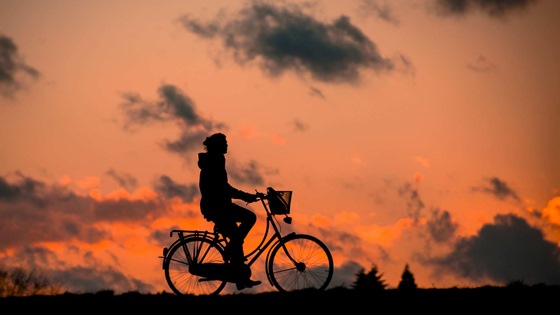More than one in eight staff already get on their bikes to commute to work at De Montfort University Leicester (DMU) – which is just over four times the national average.

Now, DMU’s green credentials are about to get a further boost as the university’s sustainability experts encourage more people to join the cycling revolution and sign-up for the Cycle September initiative.
Cycle September is a free national competition to see which workplace employees can earn the most points for riding to and from work while encouraging their colleagues to do the same.
The most recent DMU sustainability report for 2016 found that 13 per cent of staff at DMU said they rode their bike to work, which is well above the national average, with Cycle UK declaring three per cent of people surveyed in England rode their bike every day.
It means if enough DMU staff sign-up for Cycle September the university could gain national recognition for the initiatives it has introduced to get more people on two wheels instead of four.
Karl Letten, DMU Environmental Sustainability Officer, said: “Give it a go and help us get more people cycling at DMU and across the UK!”
You can sign up and join the Cycle September competition by visiting www.lovetoride.net/uk
RELATED NEWS
Be inspired - come to the next DMU Open Day
Government awards DMU Gold for teaching excellence
DMU grad raises environmental issues in world photo awards
DMU is proud of its work to reduce car use and goes out of its way to provide facilities for staff and students who cycle to work.
There are 632 spaces for commuters to park their bikes, including 134 lock-ups, shower facilities are located across six different campus buildings and the sustainability team also offers secure locks for staff and students to borrow. They also have a scheme offering lights, inner tubes and puncture repair kits to keep the bikes on the roads.
DMU’s green initiatives do not end there.
The university offers discounted travel schemes for people commuting by bus and train which has seen the number of staff travelling by public transport increase by more than a third, from 20 per cent to 27 per in the last five years.
Three years ago DMU fitted 500 solar panels on the roof tops of three campus buildings – The Faculty of Business and Law’s Hugh Aston Building, the Faculty of Health and Life Sciences’ Edith Murphy Building and The Faculty of Technology’s Gateway House - as part of the university’s commitment to reducing carbon emissions and being more sustainable. It is estimated the panels will save the university £400,000 in energy bills over 20 years and reduce carbon emissions by 1,100 tonnes.
The Vijay Patel Building’s striking tower block, which opened late last year, also has solar panels fitted on the side facing the River Soar.
DMU’s work to recycle has also seen a phenomenal drop in the amount of waste taken to landfill. In 2011/12 337 tonnes of campus waste ended up being buried in the ground. Latest figures show this dropped dramatically to 70 tonnes in 2015/16.
Posted on Friday 1 September 2017